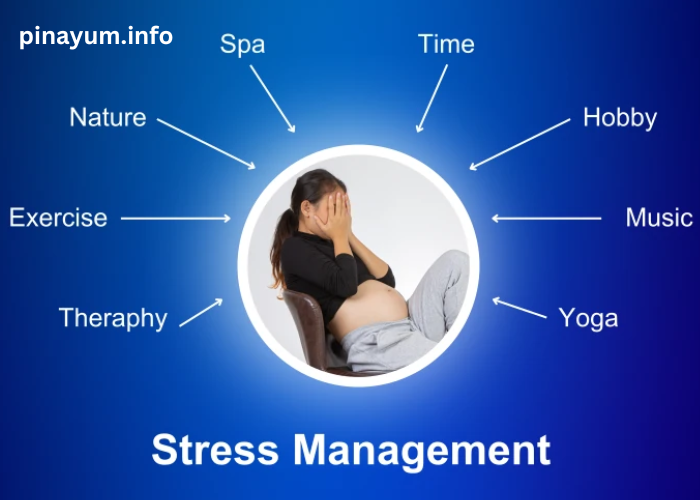In today’s fast-paced world, where distractions abound and stress levels are at an all-time high, the practice of mindfulness has emerged as a beacon of calm. Mindful living is more than just a passing trend; it’s a transformative approach to life that can help you cultivate awareness, presence, and inner peace. By focusing on the present moment and embracing intentionality in your daily activities, you can create a healthier, more fulfilling lifestyle.
This article explores the concept of mindful living, why it is essential in modern times, and how you can transform your daily habits to cultivate a more mindful existence.
What is Mindful Living?
Mindful living refers to the practice of being fully present in the moment, paying attention to your thoughts, feelings, and surroundings without judgment. It involves adopting a way of life where you focus on the “now” rather than dwelling on the past or worrying about the future. Mindfulness is rooted in ancient Buddhist practices but has been widely adopted in modern psychology for its powerful benefits on mental health, emotional well-being, and physical health.
At its core, mindful living is about slowing down and bringing conscious awareness to every action, whether it’s eating, walking, working, or simply breathing. When practiced consistently, mindfulness can lead to greater clarity, reduced stress, and a deeper connection to yourself and the world around you.
The Importance of Mindful Living in Today’s World
In our hyper-connected society, people are constantly on the go, multitasking, and seeking instant gratification. The result is a culture of distraction that often leaves individuals feeling overwhelmed, anxious, and disconnected from themselves and others. Here’s why mindful living is more important than ever:
Reduced Stress and Anxiety:
Mindfulness helps individuals manage stress by promoting relaxation and reducing the body’s natural stress response. By practicing mindfulness, you can learn to respond to stressful situations with calmness and clarity instead of reacting impulsively.
Improved Emotional Regulation:
Mindfulness encourages self-awareness, helping you understand and regulate your emotions. By observing your feelings without judgment, you can learn how to respond to emotions in a more balanced and constructive way.
Better Focus and Productivity:
Mindful living can help you stay focused and present in the tasks at hand. By minimizing distractions and cultivating attention, you can boost your productivity and perform tasks with greater efficiency and precision.
Enhanced Relationships:
When you practice mindfulness, you’re better able to listen and connect with others. Being present in conversations and responding thoughtfully fosters deeper, more meaningful relationships.
How to Incorporate Mindfulness Into Your Daily Life
The beauty of mindful living is that it doesn’t require a complete overhaul of your lifestyle. Instead, it’s about making small, intentional changes to how you engage with the world around you. Here are several ways you can incorporate mindfulness into your daily habits:
1. Mindful Breathing: The Foundation of Mindfulness
Mindful breathing is one of the simplest yet most effective ways to practice mindfulness. Taking a few minutes each day to focus solely on your breath helps anchor your attention to the present moment. It can also calm the nervous system and reduce stress.
How to Practice Mindful Breathing:
- Find a comfortable seated position and close your eyes.
- Inhale slowly through your nose, counting to four.
- Exhale slowly through your mouth, counting to four.
- Repeat this process for a few minutes, bringing your attention back to your breath each time your mind begins to wander.
By incorporating mindful breathing into your daily routine, you create a moment of calm amidst the chaos of daily life.
2. Mindful Eating: Nourish Your Body and Mind
Eating is an activity that most people do on autopilot, often while distracted by screens or multitasking. Mindful eating encourages you to slow down and truly savor each bite. This practice not only enhances your enjoyment of food but also helps you become more aware of your body’s hunger and fullness cues, fostering better digestion and healthier eating habits.
How to Practice Mindful Eating:
- Begin by sitting down to eat without distractions (e.g., no TV, phones, or computers).
- Focus on the colors, textures, and smells of your food.
- Take small bites, chew slowly, and appreciate the flavors and sensations.
- Pay attention to how your body feels as you eat—are you satisfied, or do you need more?
Mindful eating helps you develop a deeper connection to your body and makes you more conscious of what you’re putting into it.
3. Mindful Walking: Connect with Your Environment
Walking is one of the easiest ways to practice mindfulness. Whether you’re strolling through the park or walking to work, paying attention to the physical sensations of walking can help you ground yourself in the present moment.
How to Practice Mindful Walking:
- As you walk, focus on the sensation of your feet touching the ground and the rhythm of your steps.
- Notice the sights, sounds, and smells around you—be aware of the environment as you walk.
- If your mind begins to wander, gently bring your attention back to the physical sensations of walking.
Mindful walking not only encourages physical activity but also helps you reconnect with nature and the world around you.
4. Mindful Listening: Enhance Your Communication
In a world full of distractions, truly listening to others can be a challenge. Mindful listening involves giving someone your full attention during a conversation, without planning your response or thinking about other things. This practice can lead to stronger relationships and a deeper understanding of others.
How to Practice Mindful Listening:
- Give your full attention to the speaker—avoid interrupting or thinking about what you will say next.
- Maintain eye contact and show empathy through your body language.
- Focus on the speaker’s words, tone, and emotions, rather than on your own thoughts.
By practicing mindful listening, you improve your communication and create more meaningful connections with those around you.
5. Mindful Technology Use: Setting Boundaries
In an age of constant connectivity, it’s easy to become overwhelmed by digital distractions. Mindful technology use involves setting clear boundaries around your digital habits to prevent technology from taking over your life.
How to Practice Mindful Technology Use:
- Set designated times for checking emails, social media, or news apps. Avoid checking your phone immediately upon waking or right before bed.
- Turn off notifications for apps that aren’t essential, so you aren’t constantly interrupted by distractions.
- Take regular breaks from screen time to reset your mind and avoid burnout.
Being mindful of how and when you engage with technology can help reduce stress and improve your overall well-being.
6. Mindful Work: Cultivate Focus and Presence
In a busy work environment, it’s easy to get caught up in multitasking and feel overwhelmed. Mindful work involves focusing on one task at a time, eliminating distractions, and cultivating a sense of calm and presence throughout your workday.
How to Practice Mindful Work:
- Start your day by setting clear intentions and goals for the tasks you need to complete.
- Break your work into manageable chunks, focusing on one task at a time.
- Take regular breaks to stretch, breathe, and refocus.
- Practice mindfulness during meetings by listening attentively and responding thoughtfully.
Mindful work helps you stay focused, reduce stress, and improve your overall productivity and job satisfaction.
7. Mindful Self-Care: Nurture Your Mind and Body
Taking care of your mental and physical well-being is essential for leading a mindful life. Mindful self-care involves engaging in activities that promote relaxation, rejuvenation, and mental clarity.
How to Practice Mindful Self-Care:
- Schedule regular breaks to unwind and recharge—whether it’s through meditation, yoga, or simply resting.
- Pay attention to your body’s signals—get enough sleep, eat nourishing foods, and exercise regularly.
- Practice gratitude by taking a moment each day to reflect on the positive aspects of your life.
Mindful self-care ensures that you are well-equipped to handle the demands of daily life while maintaining balance and peace of mind.
8. Cultivate Gratitude: A Powerful Mindful Practice
Gratitude is a cornerstone of mindful living. Taking time each day to acknowledge what you’re thankful for can shift your focus from what you lack to what you have, fostering a sense of abundance and contentment.
How to Practice Gratitude:
- Start or end each day by listing three things you’re grateful for.
- Focus on the small, everyday blessings, such as a beautiful sunset or a kind gesture from someone.
- Keep a gratitude journal where you write down your thoughts and reflections.
Practicing gratitude regularly helps reframe your perspective and fosters a positive outlook on life.
9. Mindful Relationships: Building Connection
Mindfulness can also be applied to your relationships with others. By being present in your interactions and engaging authentically, you can strengthen your bonds and create more meaningful connections.
How to Practice Mindful Relationships:
- Practice active listening and empathy during conversations.
- Be present when spending time with loved ones, without distractions.
- Cultivate kindness and compassion by being patient and non-judgmental.
Mindful relationships lead to deeper understanding, trust, and emotional fulfillment.
Conclusion: The Power of Mindful Living
Mindful living is a powerful practice that can transform your daily habits, enhance your well-being, and create a deeper connection to yourself and others. By incorporating mindfulness into everyday activities like eating, walking, working, and listening, you can cultivate a more intentional, balanced, and fulfilling life.
The beauty of mindfulness is that it doesn’t require drastic changes; rather, it’s about making small adjustments to how you engage with the world. In today’s fast-paced society, mindfulness provides a much-needed antidote to stress, distractions, and burnout.
Start by integrating mindfulness into your daily habits, and over time, you’ll begin to notice the profound benefits it brings to your physical health, emotional well-being, and relationships. By practicing mindful living, you can create a life that is more meaningful, present, and filled with peace.





